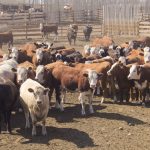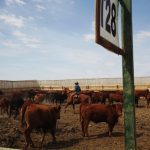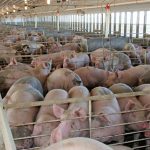Chicago Mercantile Exchange (CME) cattle futures turned lower on Wednesday amid news that China has blocked U.S. beef exports coming from a JBS-owned plant in Colorado because traces of the feed additive ractopamine were identified in beef destined for China.













